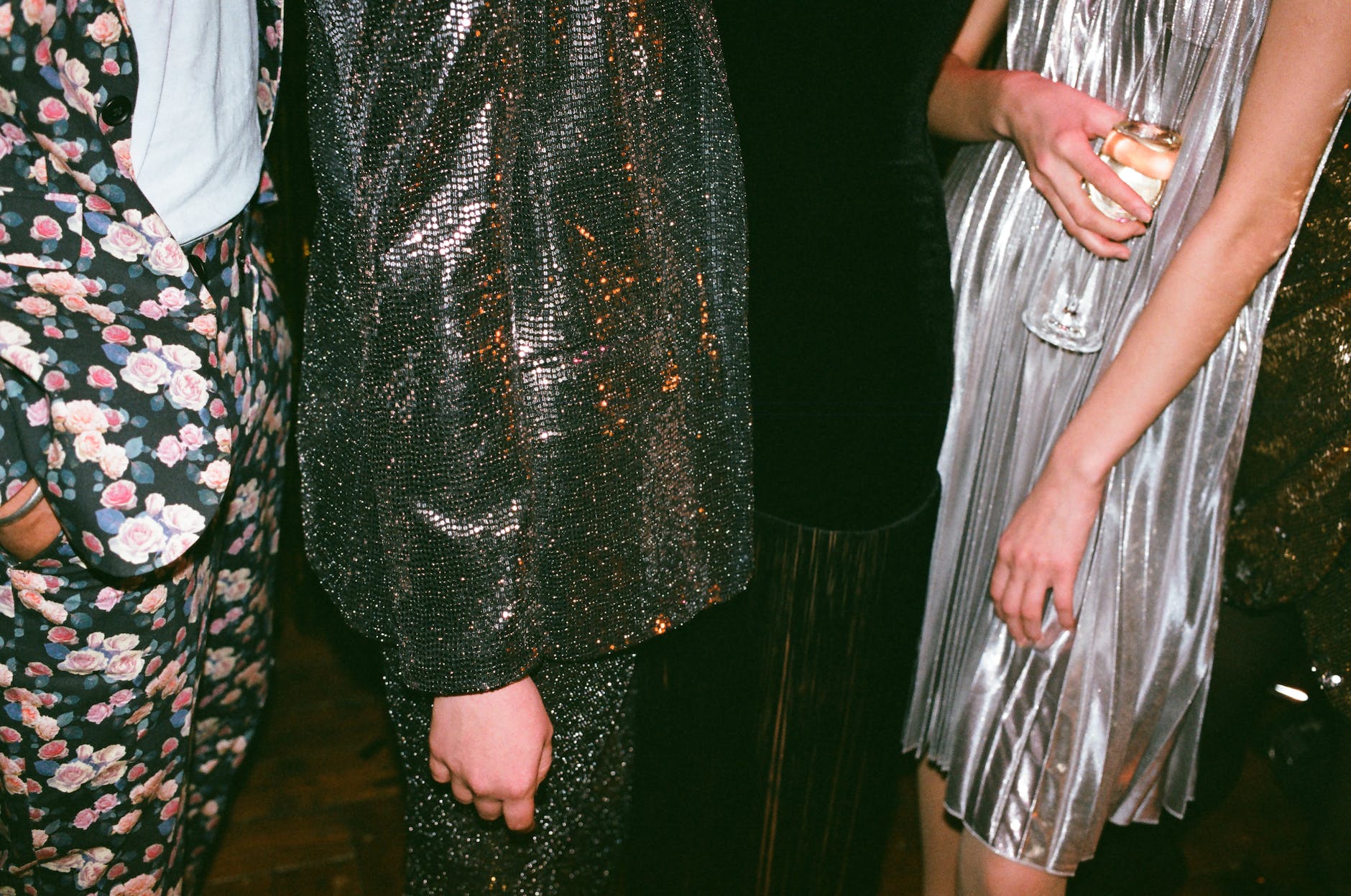“I’ve been dating since I was fifteen, I am exhausted. Where is he?” says Charlotte York in Episode 1 of Season 3, ‘Where there is smoke’, of Sex and the City .That was in the year 2000 before dating apps existed and the only way of meeting ‘the one’ was IRL, through friends, at events, parties, at work or school.
Fast forward to present day. After living in a pandemic for two years, most of us have at some point found ourselves being a ‘Charlotte’ and said or thought to ourselves ‘One more swipe and I will go to bed,’ hoping that ‘the one’ will be somewhere lost in the intricate algorithm of modern match-making.
If you live in London and own a smartphone, finding someone available for a date is surprisingly easy. Dating apps have become incredibly popular – in the UK six million people will be using them this year – and every eligible Londoner will have at least three apps on their phone. Even though Hinge’s slogan is: ‘Designed to be deleted’ (it’s one of the most popular apps in the UK) dating app users tend to keep them for at least two years, even if they pause and then resume their profiles.
These Dating Apps are Getting the Swipe left with Tinder leading
A new study by dating app, Dua.com, a nationality-based and meaningful dating app, has revealed that Tinder is the dating app people want to delete the most. The study analysed numerous dating apps, measuring the global search volume for terms relating to deleting the app to arrive at the app most people want to delete ahead of Valentines.
- Tinder is the dating app users want to delete the most, with 45,000 global searches every month around how to delete the app.
- Badoo is the second least popular app for online daters, with 22,000 monthly searches to delete the app.
Tinder is the least popular dating app, with an average of 45,000 searches being made each month around the world for how to delete the app. When broken down, searches for “how to delete Tinder account” brought in the highest volume of 19,000 searches globally, and “delete Tinder account” saw 13,000 searches worldwide each month. The app has accumulated 80 million users – more than most apps, and therefore contributes to its high ranking in this study – over six years and 64,000 ratings on the Apple App Store. The app’s rating currently sits at 3.8 out of five.
In second place is Badoo, with 22,000 worldwide searches each month for how to delete the app. Set up in 2006; the UK-based but internationally operating app has gathered 60 million users between 2015 and 2021.
With 18,100 deletion related searches on Google each month, the dating site Plenty of Fish ranks third. When broken down, the term “how to delete Plenty of Fish account” is searched 6,900 times a month, and “delete Plenty of Fish account” has 5,400 average monthly searches.
Searches to delete Bumble’s average at 8,400 every month, making it the fourth app users want to get rid of the most. Users have searched for “how to delete Bumble account” 3,900 times on a global monthly average, followed by “delete Bumble account” being searched 2,400 times around the world.
Happn takes the fifth spot with a worldwide deletion related search volume of 6,700 per month. With 15 million downloads, the app has received searches for “delete happn account” 2,000 times per month on average and “how to delete happn account” 1,800 times per month.
Commenting on the study, Valon Asani from Dua.com said, “Daters are becoming more aware of what they want from not only relationships, but also the apps that enable said relationships. This study offers a fascinating insight into which apps are the least favourable among users and it will be interesting to see if this ranking changes as 2023 continues.”
With quick dates being easy to get, is long term love harder to find?
London daters tend to set up meetings like job interviews. That attitude towards dating overlooks how magical it can be to discover one another without preconceptions or expectations. When you see someone’s height, drinking preferences and job title, does that really give you the urge to learn to love them?
I am an anthropologist and filmmaker with a YouTube channel LibidoTube that offers a conversation about how to have healthier sexual practices and how to communicate with your partner, or your sexual partner and, ironically, I don’t have one.
Prior to the pandemic, I would trust that life would put someone in my way, but socialising became difficult and I still wanted to put myself out there and test my dating abilities.So I gave in to the dating apps, and I kept swiping right for the wrong guy!

During my first dating experience, a prospective partner I met on Hinge sent a digital rose (bigger deal than giving a like) to one of my friends. It felt disrespectful, since he had seen my friend’s picture and he knew her name. This helped me understand that this was a trend, a plan of action for online daters to keep their options open.
I decided to open up the discussion by interviewing three online-dating-users within my network. They agreed that this was a strategy, a way not to keep all their eggs in one basket in order to avoid disappointment. But if we keep our options so open, aren’t we going to run out of options altogether?
All my interviewees seemed to have issues settling into one person or at least dating one person at a time. Commitment does not happen straight away with love, but it is a path you follow when you are discovering someone new, and that is hard to achieve when you have multiple options.
Mark, 29, an engineer and bachata dance fanatic from London, downloaded Tinder in 2017 after a long term relationship ended and his first date became a one year monogamous relationship. Ironically, the app that is most known for finding casual sex led him to a stable relationship.
When that ended, he downloaded OkCupid in hopes to find a more serious option. But he found more hookups through this app, even though he liked the highly detailed questions and the fact that you could know so much about someone’s preferences and taste before even meeting up, ‘You are asked whether you like to sleep in a cold bedroom or in a warm bedroom’.
I also interviewed Jackie, 27, a Marketing Executive from Barcelona, who told me that she had recently broken up with a boyfriend, and she went on Hinge straight away seeking validation, swiping through the catalogue of handsome men just for fun. Most people on dating apps use it as a rite of passage, as a way of testing their self-esteem.
This perpetuates the idea of objectifying people, since there is a thrill of discovering the ‘new person’ fresh out of your screen. Hence, this person after browsing for a bit, decided to go off the app and trust her social connections and rely on real-life events to meet people.
But for others, like Martin 31, a busy government funding officer from London, using apps means they are in control of managing their time when meeting someone. As it is predictable and practical, you can organise yourself and be efficient with what you want to get out of your date, which in real life, would be completely unpredictable.
Nevertheless, this is an issue that most interviewees have highlighted, which is the performativity of dating as oftentimes people ‘project who they want to be’ and they are mostly peacocking, at least for the first few dates until you can start to discover them at a deeper level.
To Swipe or Not To Swipe?…
In a city like London, people seem to be busy chasing a career, yet still need side hustles, hobbies, artistic aspirations and volunteer gigs. A divinely orchestrated and insular life path does no longer seem to be an appealing option, and that reflects in relationships.
Ironically, these dynamics of control and endless offers has found us lost, because we will never know if we are making the right decisions and even if we do, there will be a thought at the back of our heads that there are still options out there.
Sometimes we must let little miracles happen, even if that means getting off a dating app only to realise that your other half was there all along.
Written by Lucía López | @lucia.lobaz
Lucía López is a filmmaker and Visual Anthropology MA student with extensive research on sexuality, cultural sex practices and women studies. She has recently started a YouTube channel LibidoTube in which she opens up a space for talking about how to have healthier sexual relationships and be more intimate, as well as offering tips and tricks for how to have more enjoyable experiences.
Share your thoughts in the comment box below!

Sign up to receive the latest issue of our magazine – straight to your inbox!
Plus, we’ll share the latest news, events, and discounts from our partners in and around Soho in a MONTHLY newsletter… Ready to join the club?


One thought on “LOVELESS IN THE CITY: Are Dating Apps our only Hope to Find Love in the Big Metropolis?”